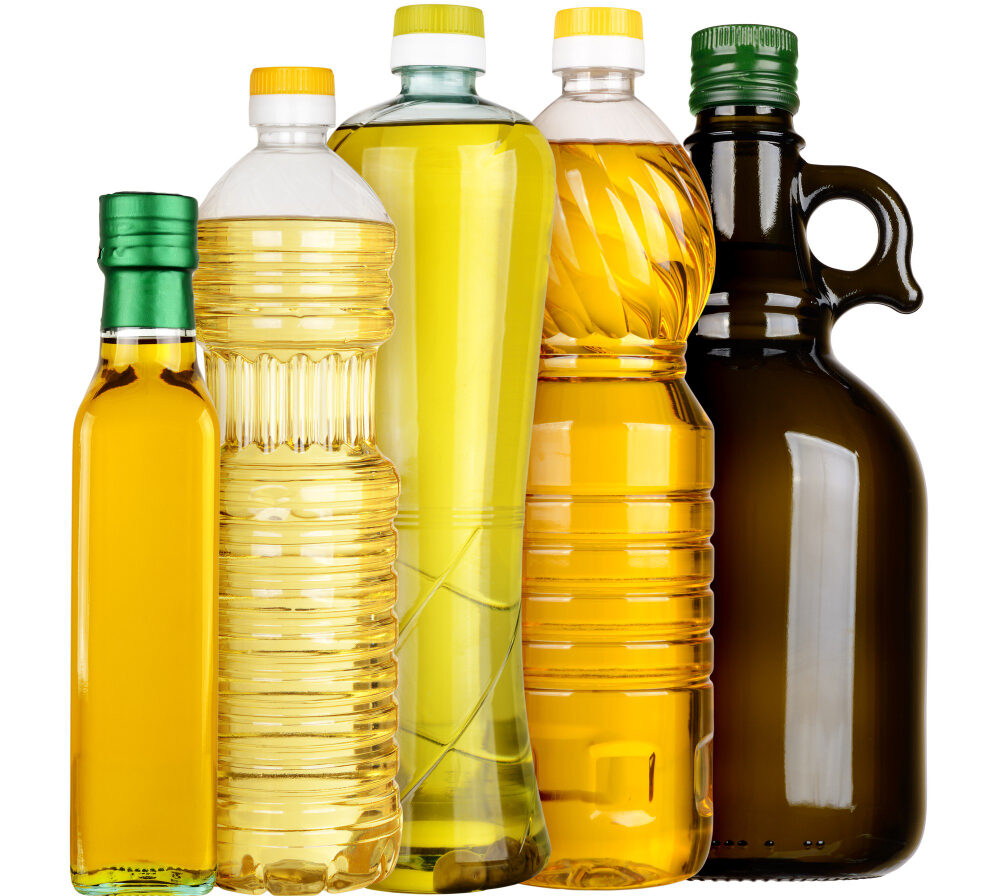Generally speaking, its rather difficult to rank popular cooking oils. On the surface it is easy to say “Olive oil is healthy, and vegetable oil is not.” So we can logically put olive oil near the top and vegetable oil near the bottom of any health list. But the middle of the pack gets interesting.
The common theme throughout is moderation – any oil should be used in moderation and for a specific purpose. It also depends on what you are using the oil for. You might choose an oil with a high smoking point for some recipes or uses and an oil with a more robust flavor for others.
But there’s more to it than that.
- Nutrient Composition: Oils vary widely in their nutrient content, including the types and amounts of fats (saturated, monounsaturated, polyunsaturated), antioxidants, and other bioactive compounds. The health impact depends on the overall nutrient profile.
- Smoke Point and Stability: Different oils have different smoke points, the temperature at which they start to break down and produce smoke. Using an oil beyond its smoke point can lead to the formation of harmful compounds. The choice of oil depends on the cooking method.
- Fatty Acid Balance: While some oils are rich in monounsaturated or polyunsaturated fats, others may have a higher proportion of saturated fats. Achieving a balance between omega-6 and omega-3 fatty acids is also crucial for overall health.
- Processing Methods: The methods used to extract and refine oils can affect their nutritional quality. Cold-pressed or extra virgin oils often retain more of the original nutrients compared to highly processed ones.
- Individual Health Needs: What may be considered healthy for one person may not be suitable for another. Factors such as existing health conditions, dietary preferences, and personal tolerance can influence the choice of cooking oil.
- Overall Diet Quality: A single cooking oil is just one component of a broader diet. The healthfulness of the entire diet, including a variety of nutrient-rich foods, plays a significant role in overall health.
- Research Limitations: Nutritional science is continually evolving, and new research may challenge or refine our understanding of the health effects of different oils. It’s important to stay updated on the latest scientific findings.
Due to these complexities, it’s often more useful to focus on using a variety of cooking oils, incorporating whole foods, and maintaining a balanced and diverse diet rather than trying to identify a single “healthiest” oil. As we stated before, moderation and variety are key principles in promoting a well-rounded and nutritious diet.
Still, let’s attempt to rank the oils by health benefits overall from healthiest to least healthy.
General Ranking of Popular Cooking Oils
- Olive Oil: Rich in monounsaturated fats and antioxidants, which may contribute to heart health. Overall this is probably the most well known “healthy” cooking oil.
- Avocado Oil: High in monounsaturated fats and low in saturated fats, potentially beneficial for heart health.
- Coconut Oil: Contains saturated fats, but some research suggests potential benefits, especially for medium-chain triglycerides (MCTs).
- Canola Oil: Low in saturated fat, high in monounsaturated fat, and has a good omega-6 to omega-3 ratio.
- Grapeseed Oil: Contains polyunsaturated fats and vitamin E, but its omega-6 content is a concern if not balanced with omega-3s.
- Sunflower Oil: High in polyunsaturated fats, including omega-6 fatty acids, which should be balanced with omega-3s.
- Soybean Oil: Commonly used but high in omega-6 fatty acids, which can be pro-inflammatory if not balanced.
- Corn Oil: Similar to soybean oil, it has a high omega-6 content.
- Palm Oil: Contains saturated fats and has environmental concerns due to deforestation.
- Vegetable Oil (Blends): Often a mix of oils, may include soybean, canola, and palm oil. The composition varies.
You’ll notice a common theme – Omega-3 vs Omega-6 fats. The more Omega-6 i the oil, generally speaking the “unhealthier” the oil is because it isn’t balanced with a good amount of Omega-3.
Remember, moderation and balance are key. Opt for variety in your fat sources and consider the specific cooking requirements of each oil.
Why is Vegetable Oil So Bad for You?
Vegetable oil is probably the most common type of popular cooking oil out there. Indeed, when people hear the term “oil the pan” or “place 1/3 cup of oil” or “fry in hot oil” – most of the time this refers to vegetable oil. It is relatively cheap and widely available.
“Vegetable oil” is a broad term that often refers to oils derived from seeds like soybeans, corn, or sunflowers. While not inherently “bad,” concerns arise due to the high levels of omega-6 fatty acids in some vegetable oils. An imbalance between omega-6 and omega-3 fatty acids can contribute to inflammation, which is associated with various health issues.
Moreover, many vegetable oils undergo processing methods like refining and high heat extraction, potentially leading to the loss of beneficial compounds and the formation of unhealthy trans fats. Additionally, some vegetable oils are high in polyunsaturated fats, making them susceptible to oxidation when exposed to heat and light, leading to the production of free radicals.
What About Peanut Oil? Is Peanut Oil Generally Good or Bad for Your Health?
Peanut oil is generally considered a healthier option compared to some other vegetable oils. It has a higher smoke point, making it suitable for various cooking methods like frying and sautéing. Additionally, peanut oil contains monounsaturated and polyunsaturated fats, which can contribute to heart health.
However, it’s important to use peanut oil in moderation due to its calorie content, and individuals with peanut allergies should avoid it. As with any cooking oil, choosing the unrefined, cold-pressed, or extra virgin versions when available can help preserve its nutritional benefits.
In summary, peanut oil can be part of a balanced diet when used sensibly, but as with any oil, moderation is key.

